In today’s world, trade rules and tariff policies can shift dramatically within hours. Past experiences in global commerce and investment are no longer reliable indicators of what lies ahead. Cross-border operations are becoming more complex, and one question continues to weigh on the minds of corporate decision-makers: How can companies identify emerging markets that not only create business value but also effectively hedge against global risk?
Dubai offers one compelling answer. Backed by the Dubai Economic Agenda D33, the city is advancing a range of innovation-driven initiatives aimed at sustainable growth. Its ambition? To double its GDP by 2033 and set a global benchmark as the world’s fastest, safest, and most connected city.
Against this backdrop, the Dubai Airport Freezone (DAFZ), in collaboration with 36Kr Global, hosted a themed exchange event in Shanghai on April 16 titled “Business Beyond Borders.” The gathering offered an in-depth look at Dubai’s business environment and growth prospects, providing practical guidance and market insights for Chinese companies eyeing a move to the emirate.
In his opening remarks, Muhannad Sulaiman Al Naqbi, the consul general of the UAE in Shanghai, noted that bilateral trade between the UAE and Shanghai reached USD 5.75 billion in 2024, marking a 21% year-on-year increase. The figure reflects the thriving economic ties between the two sides. “Across sectors including trade, logistics, real estate, construction, and frontier technologies, Dubai and China have achieved substantial cooperation,” he said. “The consulate is committed to building an investment bridge between the UAE and the world. We warmly welcome more Chinese enterprises to explore opportunities in the UAE.”
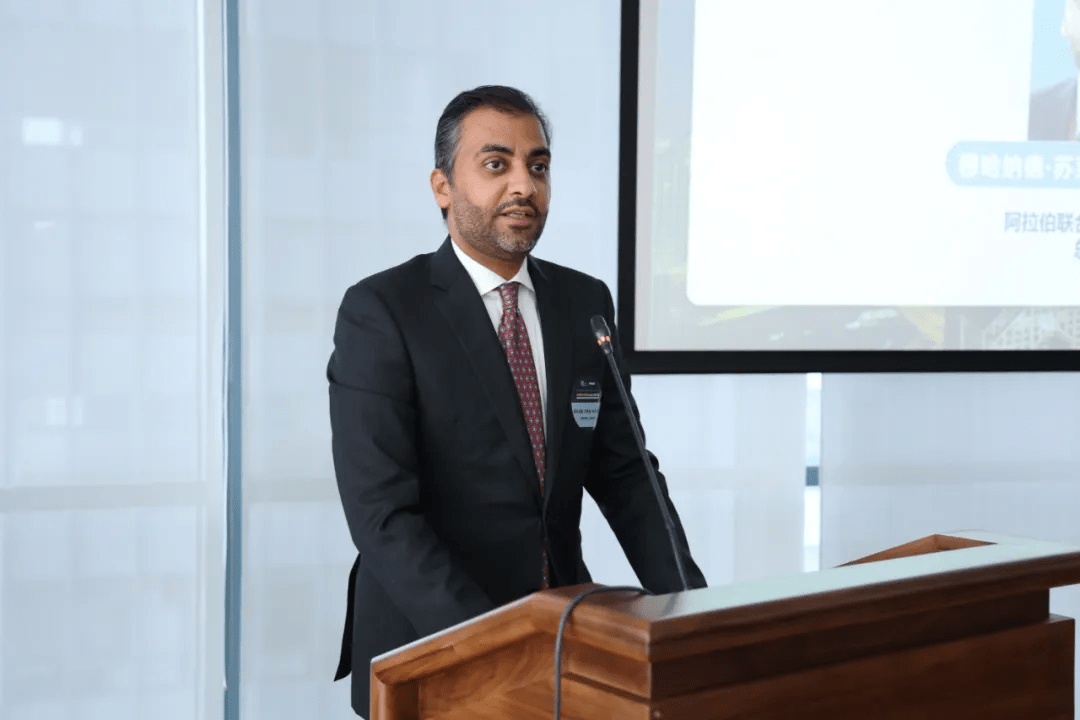
Following this, Peter Amir Ayoub, director of corporate clients for Asia and Africa at DAFZ, delivered welcoming remarks. “Built on long-term collaboration between China and the UAE in fields such as technology and infrastructure, we hope this event will pave new paths of cooperation between Chinese enterprises and the Dubai Airport Freezone,” he said. “DAFZ continues to strengthen the China-UAE commercial bridge, serving as a launchpad to help Chinese firms enter global markets. Through close collaboration, we can seize the opportunities of global economic transformation together.”
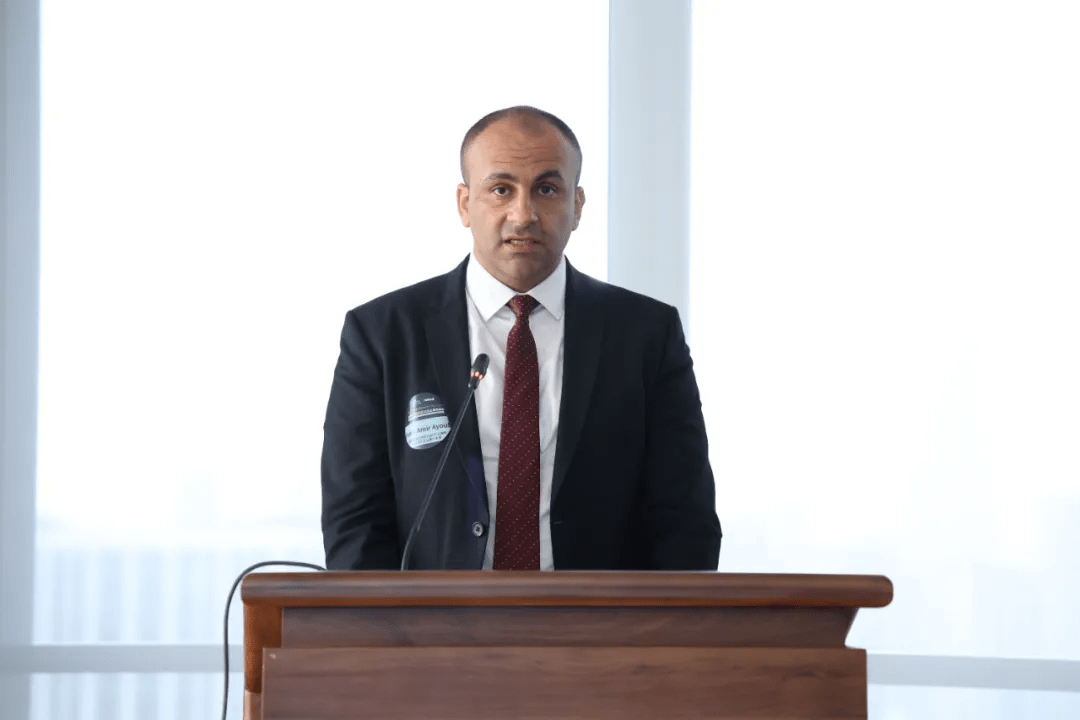
DAFZ: A strategic launchpad to the world
For entrepreneurs aiming to expand into the Middle East, Dubai offers a crucial platform. During the event, Reajin Hong, deputy manager at DAFZ, presented an overview of the zone’s advantages and investment potential.
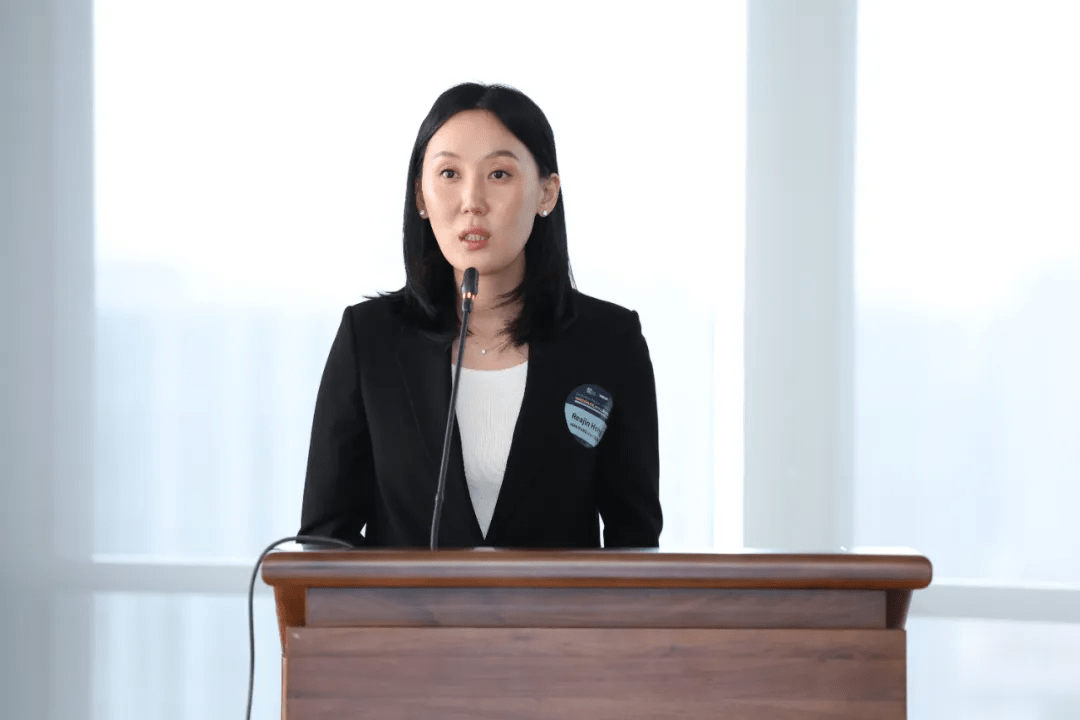
Since its founding in 1996, DAFZ has evolved into a business and trade hub in the Middle East, home to more than 3,000 enterprises spanning over 20 industries. “Currently, around 25% of registered businesses in DAFZ operate in the electronics, appliances, and computing sectors. Another 11% are engaged in logistics, freight, and aviation,” Hong said. “Among the 84 Chinese companies registered here, 12% are large multinational corporations, while 49% are small and medium enterprises.”
For businesses looking to establish a presence in Dubai, three key factors demand attention: license type, company structure, and office space. Hong outlined that DAFZ offers seven types of licenses—general trading, services, e-commerce, industrial, and more—to meet diverse operational needs. Companies can choose to register in the free zone or through Dubai’s Department of Economy and Tourism for onshore status. Notably, businesses registered in DAFZ can also apply for a dual license, which enables operations across the UAE as if they were onshore entities.
DAFZ provides flexible office solutions, ranging from shared workspaces to 50-square-meter private suites with manager rooms and meeting facilities. On the warehousing front, DAFZ operates two main zones: one adjacent to the airport runway, and another in an industrial park situated a stone’s throw away. These zones offer multi-story, multi-tenant, temperature-controlled, refrigerated, and high-security warehouses, all backed by round-the-clock customs clearance support.
In terms of operational ease, DAFZ features an integrated support ecosystem. “Inside the free zone, you’ll find branches of immigration services, major banks like the Industrial and Commercial Bank of China (ICBC), customs, chambers of commerce, police stations, and health departments,” Hong said. Additional value-added services include Halal certification and a digital B2B trade platform.
As cooperation between China and the UAE deepens, Dubai’s strategic location and business-friendly infrastructure make it a springboard for Chinese companies expanding into the Middle East, Africa, and Europe. Zhuo Jiameng, Dubai Chambers’ representative in Shanghai, highlighted the city’s unparalleled connectivity. “Emirates Airline flies to more than 270 destinations worldwide, with over 200 daily flights,” Zhuo said.
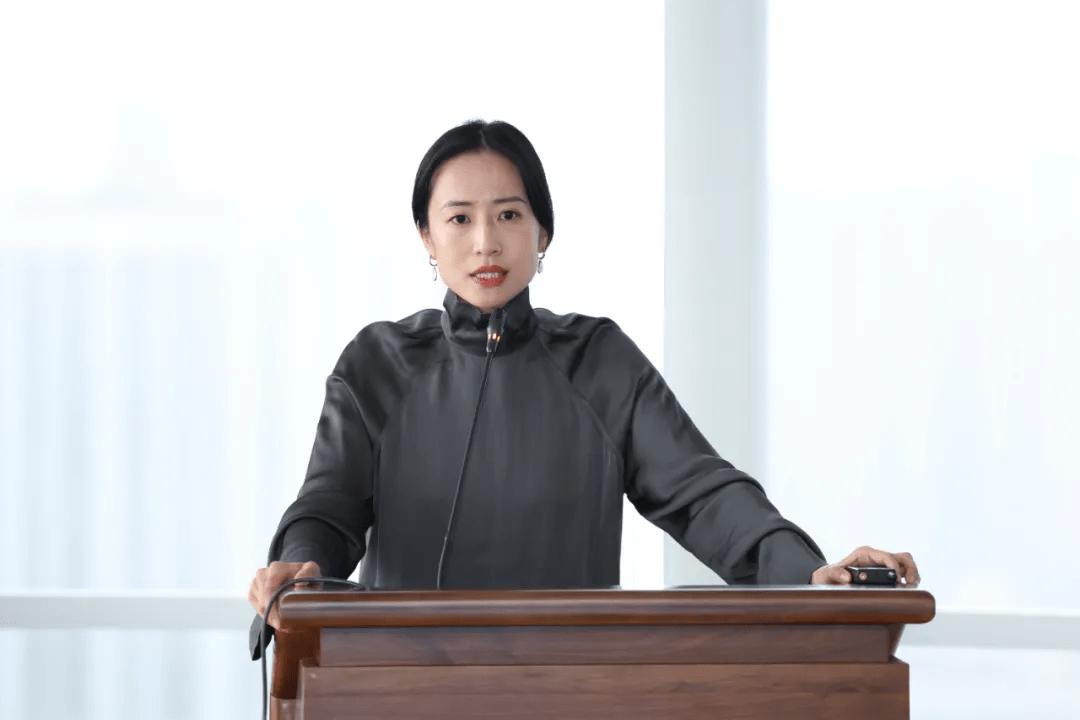
“We recommend that Chinese firms actively gather market entry data and learn from companies already operating in Dubai,” she added. “By leveraging platforms like the chamber and trade councils, and by staying closely connected with official free zone authorities, companies can create efficient and open communication channels with local regulators. We hope more Chinese firms will take decisive steps to go global—and that it’s a two-way journey.”
Building a global tax structure
Taxation and capital handling are foundational challenges in global trade and investment. Vivian Wang, tax partner at Deloitte China, shared practical insights during her talk on global tax management for Chinese firms.
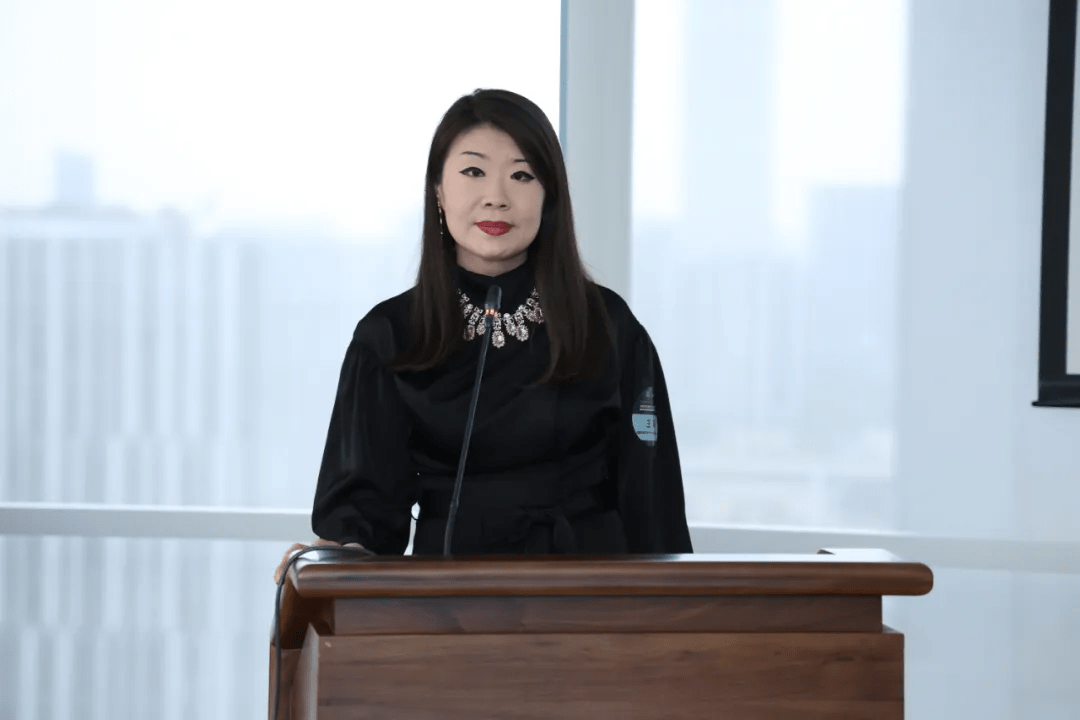
According to Wang, global tax management revolves around two key axes. The vertical axis involves the holding structure—specifically, how overseas profits are repatriated and how funds are allocated across international headquarters in Hong Kong, Singapore, or Dubai. The horizontal axis covers business operations such as supply chains, workforce management, capital flows, and IP planning.
Given ongoing geopolitical shifts, companies are encouraged to build tax structures that are both agile and conducive to future fundraising and tax optimization.
Wang observed a growing trend among Chinese private firms toward a “dual circulation” strategy. The domestic cycle focuses on producing and selling within China, while the international cycle involves setting up overseas HQs, manufacturing abroad, and selling to Europe and the US. “Some firms are adopting a model previously used by Western multinationals: keeping core R&D in China, while building production bases across Southeast Asia, the Middle East, North Africa, and Eastern Europe,” she said.
She emphasized caution in areas like certificate of origin qualification, acceptance in destination markets, and anti-circumvention risks when planning global expansion. Wang also addressed issues such as tariffs and transfer pricing, and flagged tax risks in capital arrangements that could trigger audits or penalties if handled improperly.
On the human resources front, she stressed the importance of local compliance and the risks associated with permanent establishment status. Companies should monitor outbound staff’s visa compliance, personal income tax, and social security contributions, especially in countries without bilateral social security treaties, which can increase costs.
Legal and tax guidance
In a featured keynote, Chen Rui, special advisor on the Middle East for 36Kr Global and founder of TXTK Tax Tech, provided advice on company setup and tax planning in the UAE.

Chen emphasized that selecting the right legal system is crucial. “The nature of your business will determine whether to adopt the common law framework of a freezone or the local laws applicable to firms serving the domestic UAE market,” she said.
She outlined three main types of company registrations: onshore companies, free zone entities, and offshore companies. Within the free zone category, designated zones like DAFZ may offer more generous tax benefits. “From a tax standpoint, free zones are treated as outside the UAE. Goods entering are duty-free, and sales to third countries are VAT-exempt. Eligible firms can enjoy 0% corporate tax,” Chen said.
Individual shareholders must have no criminal record, be in good health, and speak English. They must also enter the UAE at least once every 180 days. For corporate shareholders, transparency is key—they must disclose ultimate beneficiaries, provide passports, and not appear on sanctions lists.
Chen advised investors to be precise when selecting their business scope. “More is not always better. Choose only the activities you plan to pursue in the near term, as overly broad scopes may complicate bank account opening,” she cautioned.
On the compliance front, the UAE follows international accounting standards, with digital documentation as the norm. “Retention periods are five years for VAT and seven years for corporate tax records,” she said. Chinese software providers like Kingdee and Yonyou have launched localized versions for the Middle East to assist Chinese firms.
Tax policy in the UAE has evolved from consumption tax to VAT to corporate income tax. The current VAT rate is 5%, and corporate tax is either 0% or 9%, depending on eligibility. “Profits below AED 375,000 (USD 102,100) are tax-exempt; above that, a 9% tax applies,” said Chen. “From 2025, large multinationals with over EUR 750 million (USD 850 million) in global revenue will be subject to a 15% minimum tax rate under OECD rules. The UAE imposes no personal income tax—neither wages nor dividends are taxed.”
Bank account opening remains a major hurdle. “The key is a clean, transparent ownership structure and clear capital sources,” Chen said. “Banks want to know your suppliers, your clients, and whether you engage with high-risk or sanctioned countries. All this must be disclosed.”
As the UAE’s tax framework matures, Chen urges firms to stay alert to policy changes and operate in full compliance while benefiting from favorable conditions.
Special mentions
As a key window into international engagement, Shanghai’s Council for the Promotion of International Trade (CCPIT) and Chamber of International Commerce (COIC) Shanghai have played instrumental roles in advancing global trade ties—and offered strong support for the event.
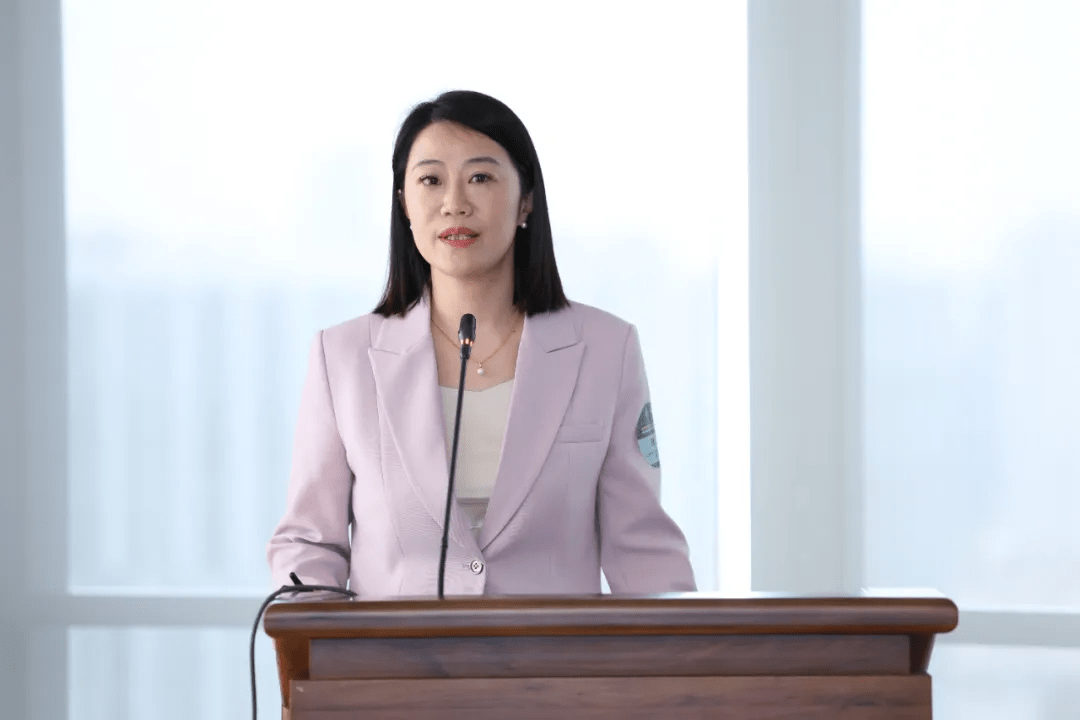
“We’ve built a comprehensive outbound support system for enterprises,” said Wei Hui, business director of trade and investment promotion at CCPIT Shanghai. “Through exhibitions, legal protections, one-stop service platforms, training, and regional cooperation, we help Chinese companies globalize and serve as a bridge between domestic and international markets.”
In practice, CCPIT Shanghai has proactively promoted business exchanges between China and the UAE. The council organizes annual delegations to attend trade fairs in the region, and in October this year, it will host the Future Mobility Expo in Sharjah. It also maintains close ties with the UAE consulate in Shanghai and the Dubai Chambers’ local office. These partnerships have created opportunities for dialogue between Chinese businesses and UAE officials, easing market entry and lowering information barriers.
36Kr Global is a partner of the “Business Beyond Borders” event held by DAFZ on April 16 in Shanghai.
